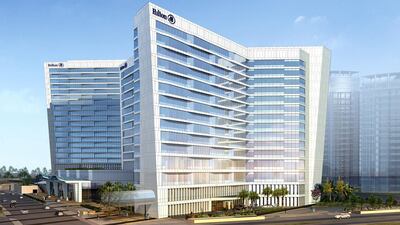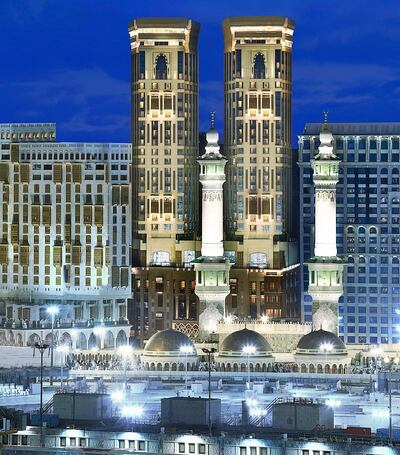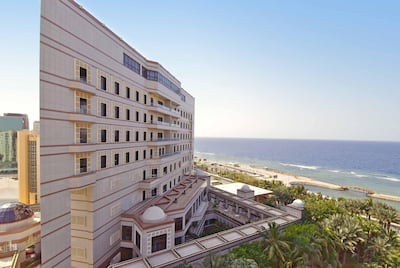How does a country implement tourism infrastructure in 2019, when it hasn't yet been open to widescale tourism?
That is the immediate question facing Saudi Arabia, after the kingdom introduced tourist visas for the first time on Friday. The country's current tourist infrastructure is fledgling to say the least, aside from the pilgrimage regions associated with Hajj, meaning international investors are pouring in billions of dollars to develop hotels, restaurants and entertainment facilities.
So, as Saudi officially launched its new visas at a glitzy event at the Unesco-listed site of Ad Diriyah on the weekend, it also used the occasion to announce a monumental investment in its tourism infrastructure.
That night, Saudi Arabia's General Investment Authority (SAGIA) and the Saudi Commission for Tourism and National Heritage (SCTH) announced agreements with regional and international investors worth 100 billion Saudi riyals (Dh99.2bn). One of those investors was Hilton, who will quadruple the number of hotels they have in the kingdom by 2030.
"This is our key market in the Middle East," Rudi Jagersbacher, president for Middle East, Africa and Turkey, tells The National, before he publicly pledged the group's commitment to the country.
Jagersbacher had watched the Saudi tourism market transform in recent months, especially the international one. Fewer Saudis were heading abroad to seek entertainment and experiences they couldn't get back home, he says.
"The number one customer for us in the UAE was Saudi until last year," Jagersbacher explains. "More people are staying, there are more cultural events and more things to do."
Hilton currently has 13 hotels in the kingdom, after first entering the market in 1993 with a hotel in Makkah. That was a "pivotal change" for the company, Jagersbacher says, as they'd not yet catered to religious tourism.
But on Friday, the company signed off on the development of 41 new hotels in the kingdom in the next decade, an investment by Hilton's development partners (the company operates an asset-light model where they don't own their buildings) of $5 billion.
The hotels would be mostly located in "strategic business locations", Jagersbacher says, and not necessarily tourist hotspots. Sixteen new Hilton hotels will be built in Riyadh, several in secondary cities with a focus on the eastern provinces, and also in places like Jazan and Madinah. Jagersbacher would not confirm whether the company would enter any of Saudi's giga projects, such as Neom, but said they were "looking into it". But they say they're not necessarily building solely for the luxury market, which many of Saudi's new giga projects and developments seem to be geared towards. Instead, Hilton is focusing on mostly four-star hotels. They will also be establishing another hotel in Makkah, this time a 2,500-room Hampton Hotel.
"We are also catering to the domestic tourism [market] and for the outgoing market, too," Jagersbacher says.
The project will require a huge influx of staff. An extra 41 new hotels will take Hilton's existing staff base from around 2,500 to an estimated 10,000 by the time all of the hotels are completed. International staff will be flown over to get things up and running, but Jagersbacher says Hilton will also be focusing on having Saudis running the hotels, and encouraging women into the workforce and into leadership roles.
"We want local people running local businesses," he says.
Saudi Arabia expects to increase international and domestic visits to 100 million a year by 2030, attracting significant foreign and domestic investment and creating a number of jobs. The kingdom aims to increase tourism sector's contribution towards gross domestic product to up to 10 per cent by 2030, from just 3 per cent today.
On Friday, the country also signed a memorandum of understanding, worth 20bn Saudi riyals, with Majid Al Futtaim for a mixed-use shopping and entertainment destination that will create 12,000 jobs and feature the region's largest indoor ski slope and snow park.
"Opening is the easy bit, now it's showing people they are open that's next," Jagersbacher says.



